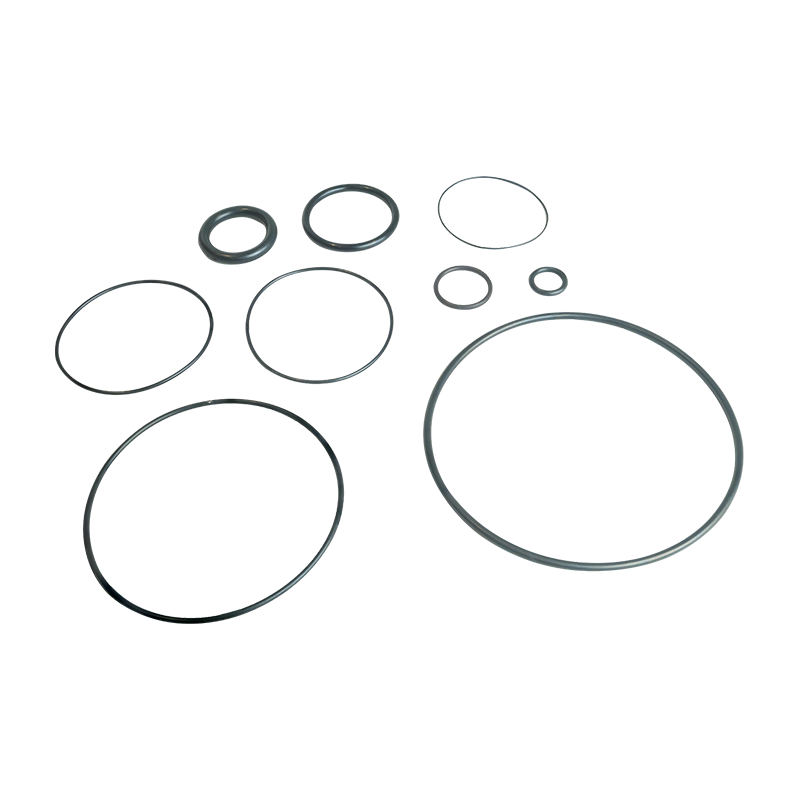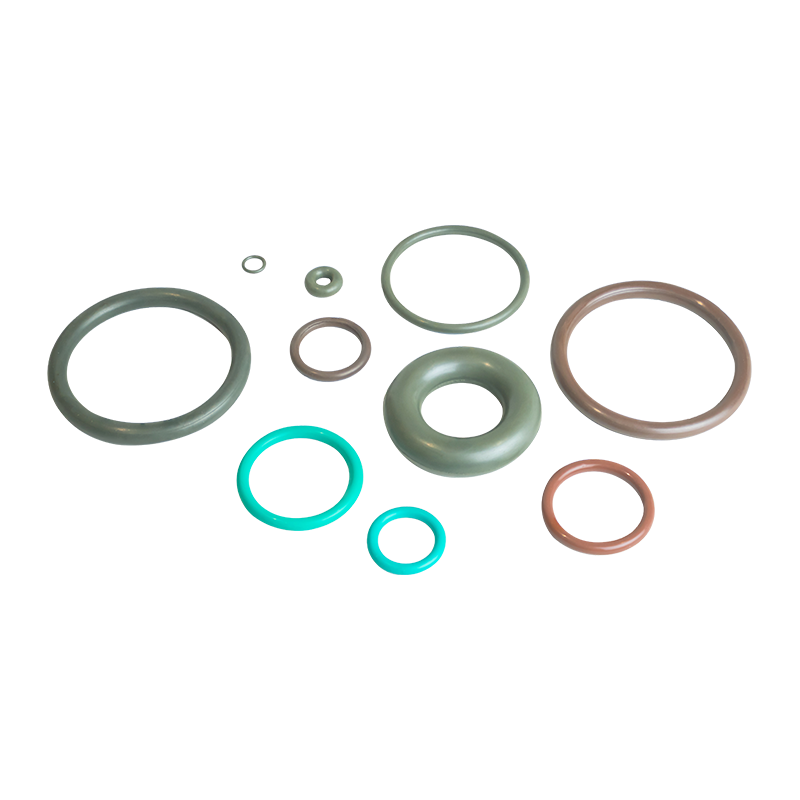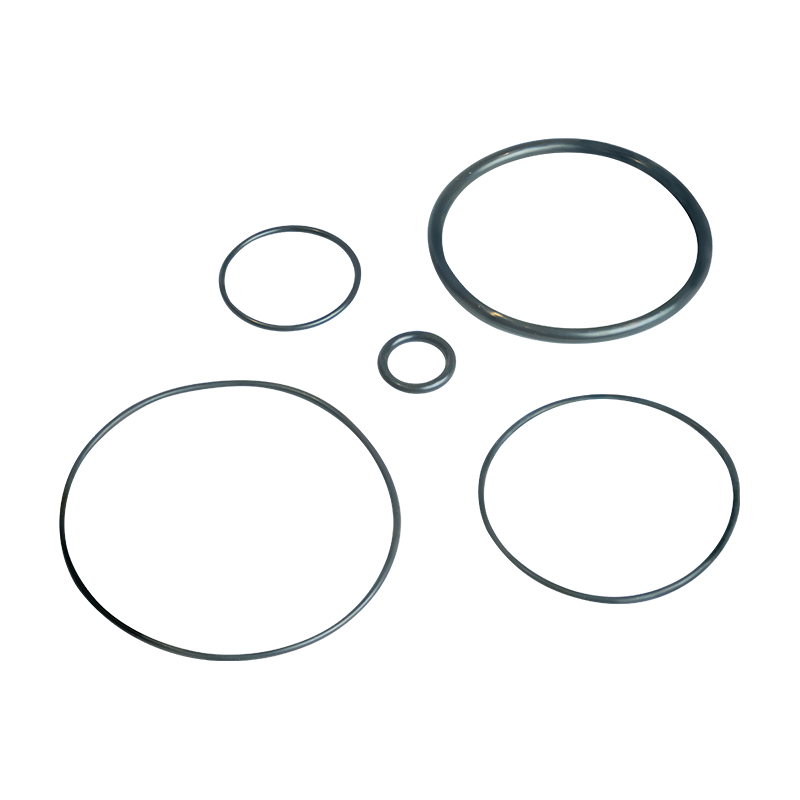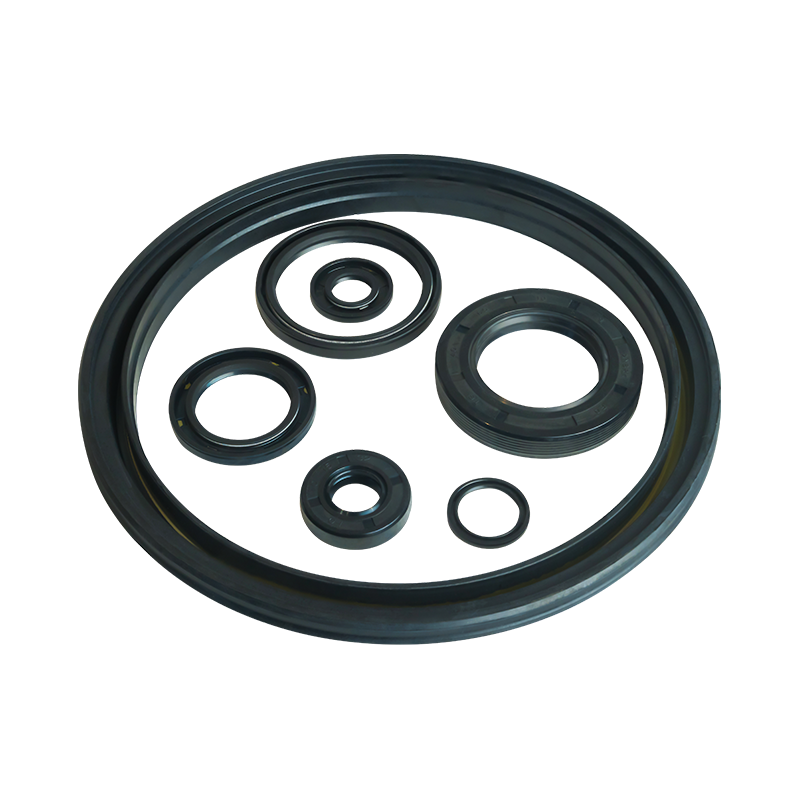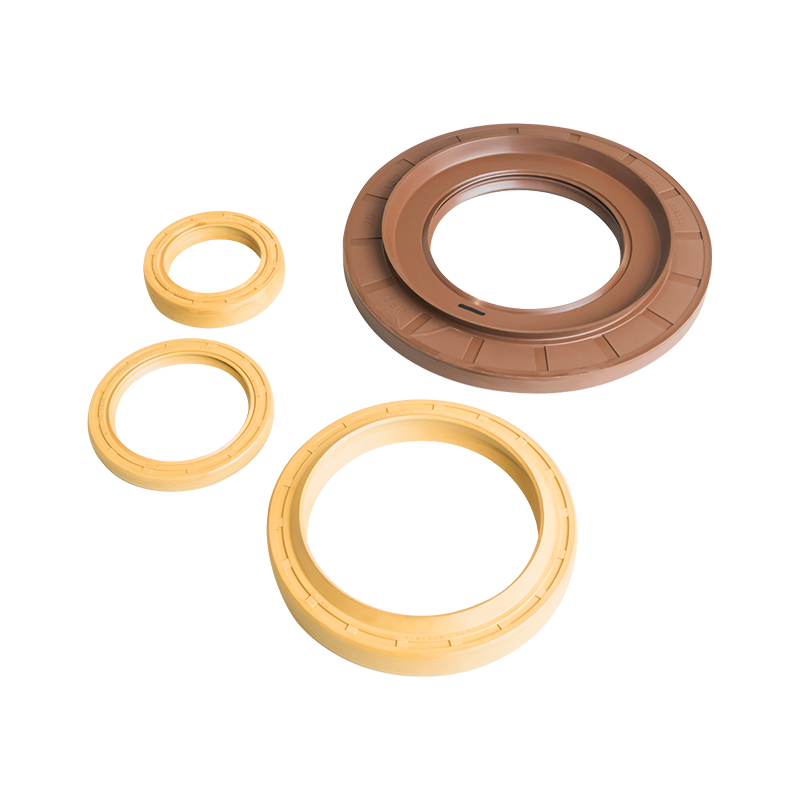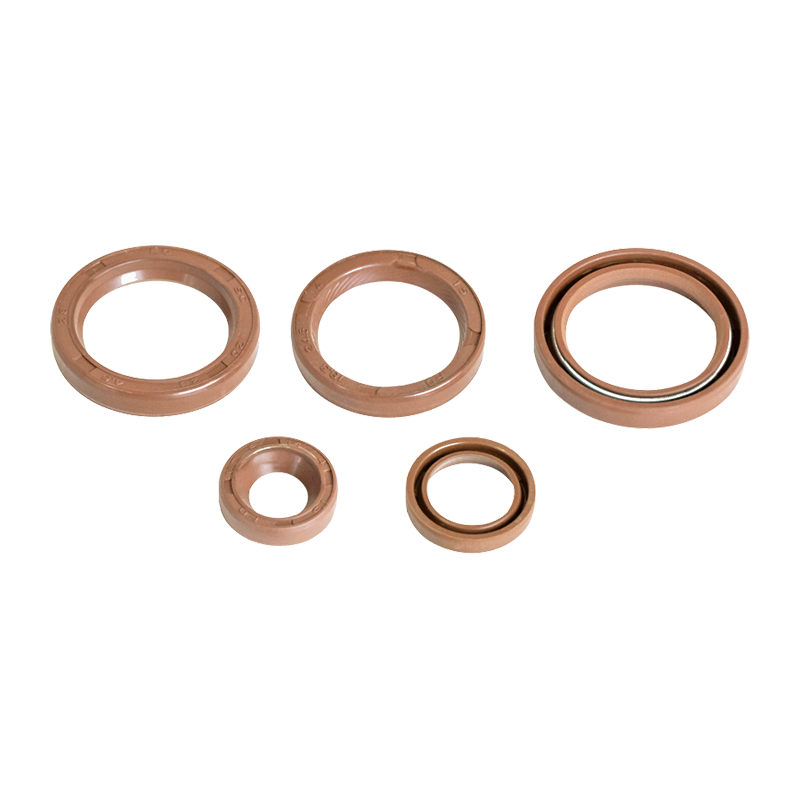How Do FKM O-Rings Ensure Long-Term Reliability in Harsh Conditions?
In the demanding world of industrial sealing, failure is not an option. A single compromised seal can lead to catastrophic system breakdowns, significant production losses, costly downtime, and serious safety hazards. For engineers, designers, and procurement specialists across countless industries, the selection of a sealing material is a critical decision that directly impacts operational integrity. Among the plethora of elastomeric options available, one material consistently stands out for its exceptional performance in punishing environments: the fluorine rubber fkm o-ring seal. But what is it about this specific type of seal that makes it the gold standard for long-term reliability when faced with extreme heat, aggressive chemicals, and challenging conditions?
Understanding the Foundation: What is Fluorine Rubber (FKM)?
To appreciate the performance of a fluorine rubber fkm o-ring seal, one must first understand its fundamental composition. Fluorine rubber, internationally designated as FKM (per the ASTM D1418 standard), is a synthetic elastomer characterized by its polymer chain containing fluorine atoms. This fluorine content is the key to its remarkable properties. The carbon-fluorine bonds within the polymer structure are among the strongest in organic chemistry, creating a incredibly stable and inert molecular backbone. This inherent stability translates directly into the material’s resistance to degradation from thermal energy, chemical attack, and environmental exposure. When compounded and cured into an o-ring, this material transforms into a resilient, durable seal capable of maintaining its functional integrity under stresses that would rapidly destroy lesser elastomers. The term fkm material encompasses a family of different grades and compositions, each tailored to optimize certain characteristics, such as low-temperature flexibility or resistance to specific aggressive media, but all share the common foundation of fluorine-based chemistry.
The Pillars of Performance: Key Properties Ensuring Reliability
The long-term reliability of a fluorine rubber fkm o-ring seal is not attributable to a single property but rather to a powerful combination of several exceptional characteristics. These pillars of performance work in concert to ensure the seal can withstand the multifaceted challenges of a harsh operating environment.
Exceptional High-Temperature Resistance
Perhaps the most renowned attribute of fkm is its ability to perform reliably at elevated temperatures. While standard nitrile rubber (NBR) seals may begin to harden and degrade rapidly above 100°C, a high temperature fkm o-ring is designed for continuous service. Standard FKM compounds typically function effectively in a range from -20°C to over 200°C. Specialized formulations can extend this range even further, handling short-term peak exposures up to 300°C or, conversely, offering improved performance at lower temperatures. This high temperature resistance is crucial because heat accelerates the degradation processes of most materials. It can cause other elastomers to lose elasticity through hardening, become brittle, and crack, leading to seal failure. The strong carbon-fluorine bonds in fkm require significantly more energy to break, allowing the material to retain its mechanical properties and sealing force over long periods at high temperatures. This makes it an indispensable component in applications like automotive engine compartments, aerospace propulsion systems, and chemical processing plant equipment where heat is a constant factor.
Superior Chemical Resistance and Fluid Compatibility
The second pillar of FKM’s reliability is its outstanding resistance to a vast array of chemicals and fluids. This is a primary reason why engineers specify a chemical resistant fkm o-ring for demanding duties. The fluorine-rich polymer backbone creates a dense, non-polar shield that is highly impermeable and repellent to many aggressive substances. An fkm seal demonstrates excellent compatibility with a wide range of industrial fluids, including oils, fuels, lubricants, hydraulic fluids, and many mineral acids. Its resistance to swell and degradation in these media is far superior to that of common hydrocarbons like NBR or EPDM. This chemical resistance ensures that the seal does not soften, dissolve, or undergo a dramatic change in volume, which would compromise the sealing interface and lead to leaks. This property is critical for long-term reliability, as chemical attack is often an insidious process that gradually degrades a seal’s physical dimensions and properties until it no longer functions. In applications involving fuel systems, oil and gas exploration, or pharmaceutical manufacturing, where exposure to aggressive solvents and fluids is inevitable, the chemical inertness of fkm is a fundamental requirement for ensuring system integrity and preventing hazardous leaks over the intended lifespan of the equipment.
Impressive Resistance to Aging and Weathering
Long-term reliability is not solely about withstanding extreme operating conditions; it also involves resisting the gradual, ambient degradation caused by the environment. This is where the weatherability and ozone resistance of fkm excel. Ozone, a potent oxidant present in the atmosphere, rapidly attacks the double bonds in the polymer chains of many unsaturated elastomers, causing them to crack and fail prematurely—a phenomenon known as ozone cracking. The saturated structure of high-quality FKM compounds makes them inherently resistant to ozone and oxidation. Furthermore, fkm o-rings exhibit strong resistance to ultraviolet (UV) radiation, moisture, and fungal growth. This combination of properties means that an fkm seal installed in an outdoor application, such as on a marine vessel or in an offshore energy platform, will not succumb to environmental aging. It will maintain its flexibility and sealing capability season after season, unlike seals made from materials vulnerable to atmospheric degradation. This resistance to aging ensures that the seal remains reliable not just during operation, but throughout its entire installed life, even during periods of downtime.
Low Gas Permeability and Compression Set Properties
Two slightly more technical but equally vital properties contribute significantly to the reliable function of a fluorine rubber fkm o-ring seal: low gas permeability and low compression set. Permeability refers to the rate at which gases or liquids can diffuse through the solid material of the seal itself. The dense molecular structure of fkm results in very low permeability, making it an excellent choice for sealing gases and volatile liquids under pressure. This prevents gradual loss of media through the seal wall, a critical factor in applications like refrigerant sealing in HVAC systems or containing toxic gases.
Compression set is a measure of an elastomer’s ability to return to its original thickness after being subjected to a prolonged compressive load. A poor compression set means the seal takes on a permanent deformation and does not spring back to maintain sealing force on the mating surfaces. This is a common failure mode leading to leaks. FKM compounds, particularly those using premium peroxide cure systems, are renowned for their excellent compression set resistance, even after prolonged exposure to high temperatures. This means an fkm o-ring will continue to exert a consistent sealing force for years, ensuring a leak-tight seal remains secure and reliable throughout the maintenance interval of the equipment.
Application-Specific Reliability: Where FKM O-Rings Excel
The theoretical properties of fkm are best understood through their practical application. The reliability of the fluorine rubber fkm o-ring seal makes it the material of choice in several critical industries where failure is not an option.
Automotive and Aerospace Engineering
In the automotive sector, the push for higher efficiency has led to engine compartments running hotter than ever. Fkm o-rings are found throughout the engine and drivetrain, sealing in hot oil in transmission and valve stem systems, handling aggressive fuels and biofuels in injection systems, and containing hot air in turbocharger and EGR units. Their ability to withstand both high temperatures and chemical attack ensures the longevity and reliability of these complex systems. Similarly, in aerospace, the demands are even more extreme. Fkm seals are used in fuel systems, hydraulic systems, and engine components, where they must perform flawlessly under immense pressure, wide temperature fluctuations, and exposure to skydrol hydraulic fluid and jet fuels. The exceptional safety and reliability offered by fkm are paramount in these applications.
Oil, Gas, and Energy Production
The exploration and production of oil and gas present some of the most hostile conditions for any sealing component. Equipment is exposed to high-pressure sour crude (containing硫化氢), methane, explosive gases, and a cocktail of chemicals used in drilling and extraction processes, all at high temperatures. A standard oil seal would fail rapidly. A fluorine rubber fkm o-ring seal, particularly grades resistant to explosive decompression, provides the necessary chemical resistance and durability to ensure safety and prevent environmentally damaging leaks in wellheads, valves, and Christmas trees. In energy production, fkm seals are critical in geothermal plants with superheated steam and in systems handling alternative fuels.
Chemical Processing and Pharmaceutical Manufacturing
Chemical plant equipment—including pumps, valves, reactors, and pipe flanges—requires seals that can handle a vast spectrum of corrosive acids, caustic bases, aggressive solvents, and hydrocarbons. The chemical resistance of fkm makes it a versatile and reliable choice for containing these media, protecting both personnel and the environment from dangerous leaks. In the pharmaceutical industry, where processes often involve aggressive cleaning agents and solvents, fkm o-rings provide the necessary compatibility and reliability to maintain sterile and contained processes, ensuring product purity and batch consistency.
Selecting the Right FKM for Maximum Reliability
Not all fkm compounds are identical. To ensure maximum long-term reliability, selecting the correct grade for the specific application is essential. This choice often involves a balance of properties.
| Property Consideration | Application Implication | FKM Grade Note |
|---|---|---|
| High Temperature | Continuous exposure above 175°C | Standard grades are suitable; for extremes, specialty high-temp polymers may be needed. |
| Low Temperature | Static or dynamic sealing below -20°C | Standard FKM gets stiff; special low-temperature grades offer better flexibility. |
| Water/Steam Resistance | Sealing hot water or steam | Standard FKM is poor; specific grades with optimized polymer chemistry are required. |
| Chemical Exposure | Specific acids, bases, or solvents | Compatibility must be checked. For example, certain esters and ketones can attack FKM. |
| Compression Set | Long-term static sealing with no maintenance | Peroxide-cured FKM offers superior long-term compression set resistance. |
Understanding the exact media, temperature range, and pressure is crucial. Consulting with a technical expert or using a chemical resistance guide is highly recommended to match the fkm material properties to the application’s demands and guarantee reliability.
Sray up to date with allour recent products
- Address: No. 6 Yangsha Road, Chengbei Industrial Park, Huilong Town, Qidong City, Jiangsu Province China
- Phone: +86-13906283641+86-18934546679
- Fax: +86-0513-83698022
- Email: [email protected]




 English
English русский
русский 中文简体
中文简体

